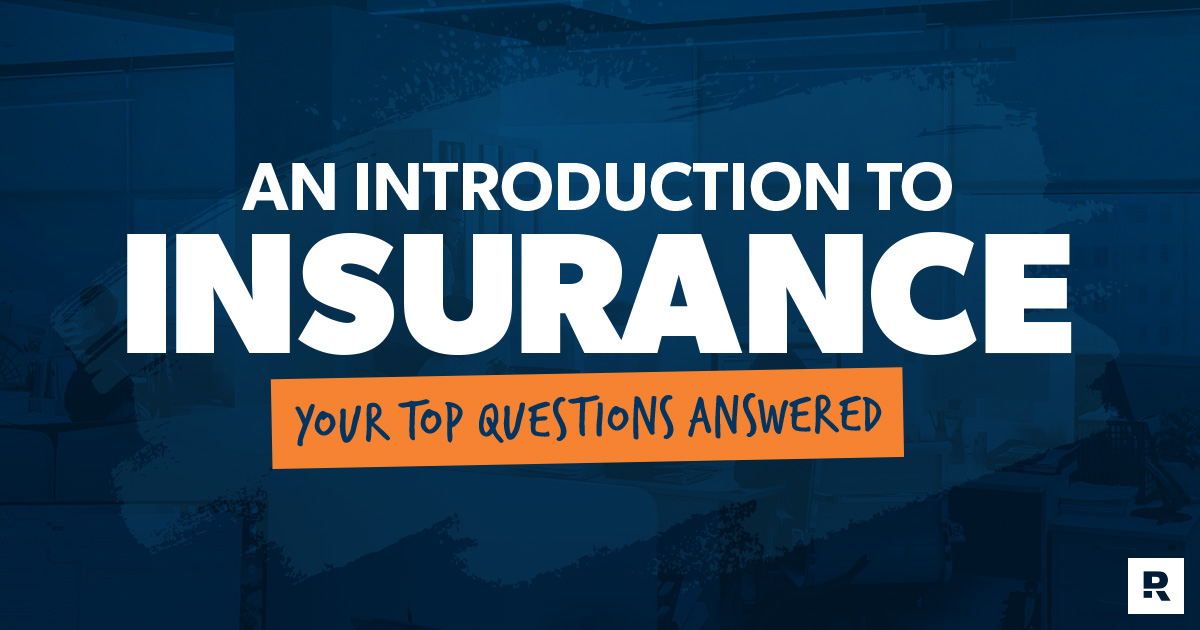
In case you haven’t realized, insurance can be complicated. After all, we’re talking about an industry that uses lingo like “double indemnity death insurance,” and “actuarial reserving methodology.” Does your brain hurt? Well, I’m here to help it un-hurt (hey, I’d say that’s as much of a word as “indemnity”).
This is an introduction to insurance so we’re just going to go over the basics and answer three important questions:
- Why do you need insurance in the first place?
- How does it work?
- And what types of insurance do you need?
Let’s start with that first question.
Why Do You Need Insurance?
The reason you need insurance comes down to one word: risk. And no, not the kind of risk I took when I asked my wife out for our first date over Snapchat. We’re talking about financial risk—think medical bills from an emergency or the fallout from a major car accident.
Those things may seem unlikely, but they can happen to us at any time. And if you don’t have insurance, you’ll have to foot the bill all by yourself. Have fun writing that $10,000 check after you tear your ACL playing pickleball or whatever fake sport is cool by the time you’re reading this.
But when you do have insurance, you’re protected financially from that kind of risk. That’s what insurance is all about. It’s not a savings plan, and it’s not an investment. It’s about transferring financial risk from you to an insurance company.
You know what protection like that gives you? A whole lot of peace. It certainly helps me sleep better at night—along with my weighted blanket and my silk eye mask. (Don’t knock it till you try it. It’s a game changer.)
How Does Insurance Work?
Next, let’s talk about how insurance works. There are two key terms you need to know: premium and deductible.
A premium is the amount of money you pay an insurance company, usually each month, for coverage. A deductible is the amount you’re on the hook for before your insurance provider steps in and starts paying on a claim.
Let’s look at an example:
We’ll say you have an auto insurance policy with a $200 monthly premium and a $2,000 deductible. That means you pay the insurance company $200 a month for coverage. Then, if you get into an accident and file a claim with your insurance company, you’ll have to dish out $2,000 to cover your deductible before the insurance company jumps in to help pay for repairs or a replacement.
Now, those are just the basics. Things can get a little more complicated, especially in the health insurance world. So don’t be afraid to do a deeper dive.
What Types of Insurance Do I Need?
If you do a quick Google search, it won’t take long to realize the insurance world is full of . . . insurance. Seriously, there are a bajillion types, and most of them are junk. So, let me narrow it down to the eight that really matter.
For starters, there’s
You need these no matter what stage of adulthood you’re in.
The next batch of insurance, I’m gonna label “if/thens.” If someone depends on your income, then you need term-life insurance.
If you’re 60 or older, then you need long-term care insurance.
And if your net worth is over half a million dollars, then you need an umbrella policy.
Do you have the right insurance coverage? You could be saving hundreds! Connect with an insurance pro today!
Lastly, while it’s not technically “insurance,” I highly recommend getting identity theft protection that covers restoration services (that means if a crook steals your identity and you lose your shirt, you’ll get your shirt replaced).
So, how do you make sure you have the coverage you need in all those areas? Take our free Coverage Checkup. Just answer a few questions, and we’ll make sure you have all the right coverage in all the right places. Even better, we'll give you your own personalized action plan that breaks down what to keep, add or nix so you can take control of your insurance with confidence.
There you have it. Now you understand the basics of insurance—what it’s for, how it works, and which kinds you need. Best of all, no pain to the brain—just like I promised.
Next Steps
- Now that you and insurance have been introduced, look into how much the average person pays so you can start budgeting for insurance.
- Learn about independent insurance agents and how they can help you save time and money.
- There’s only so much reading you can do before you just have to do the thing. Ready to secure your hard-earned money and get covered? Get in touch with our RamseyTrusted insurance pros who can help you get a policy for everything you have to protect.


